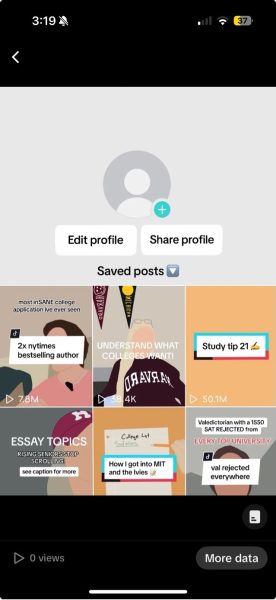
When Grace Valdez was a freshman, Gohar Khan appeared on her social media feed like a knight in academia armor, protecting followers on the quest to their dream schools. With more than 3.3 million followers on TikTok and YouTube, a private counseling business and an impressive list of acceptances, the MIT grad seemed to hold the keys to her college admissions castle.
Now a junior, Valdez has folders of saved Instagram reels on topics from essays to resumes that she plans to reference as she navigates college admissions.
“I was trying to figure out the best way to tackle the college admissions process, and from there, more and more stuff would show up on my feed, and I just learned more.”
From 30-second Common App tips to students sharing “The Essay That Got Me Into Harvard,” content surrounding admissions for top-20 universities garners millions of views across social media platforms. Many college admissions content creators are former admissions officers or experienced private or school counselors. But others, like Khan, are recent college students with one particularly attractive qualification– their acceptance to an elite university.
Valdez said she tends to follow influencers who lead with facts and speak with confidence. But she scrolls past those who repeat common knowledge, lean into stereotypes or come from expensive private high schools.
“Not that I tend to do that much research on the videos as I’m scrolling through them, but if they’re informative and if they say something I’ve never heard before, I usually would follow them,” Valdez said. “When they give you a clear, concise way to do something better rather than just listing off everything they’ve done, it helps way more.”
I think authenticity is my biggest value, so I don’t want to start using somebody else’s strategies.
— senior Hazel Reddy
Senior Hazel Reddy, who applied to 11 colleges, turned to Instagram influencers to better understand the purpose of each application component. For essays and short answer questions, however, she almost always rejected social media advice.
“I wouldn’t say that I ever really use the advice because oftentimes it’s not extremely applicable to me, or it’s stuff that I’ve heard before or it’s about schools I’m not really interested in,” Reddy said. “I think authenticity is my biggest value, so I don’t want to start using somebody else’s strategies.”
Duke University student Daniel Lim, “limmytalks” on social media, posts daily videos about successful applications and predicts students’ admissions results. While he has never worked in an admissions office, Lim told The Shield he bases his videos off of common data sets and trends throughout the thousands of applications he’s read.
Lim posted his first college-related video in August 2022 after receiving multiple comments asking how he got accepted to Duke. He has since gained over 273,500 followers on TikTok, started a podcast and launched an admissions-related startup.
“The goal with my content is to make admissions information actually accessible to everybody,” Lim said.“The name of the game is equity at the point that we’re at in the world.”
But many college admissions influencers aren’t giving out advice for free. Lim said he made around $1,000 from the TikTok Creativity Beta Program in July, in addition to doing sponsored posts. He is also working on a startup that will connect students with extracurricular opportunities.
The goal with my content is to make admissions information actually accessible to everybody.
— college content creator Daniel Lim
Other influencers create social media content to promote their private counseling businesses. Kelsey Hoskin, a Harvard graduate with over 5 million likes on TikTok, charges $675 for a one-hour private Zoom session and $12,975 for personal coaching. Khan used social media to launch Next Admit, a college admissions firm that he co-founded. Other creators offer essay-editing services at a wide range of prices.
“There’s always going to be people that are trying to make a quick buck on something that they’re not really qualified to gauge, but if you look on the side of a content creator it would also not make sense for them to be doing something completely out of the kindness of their heart,” Lim said. “It doesn’t mean that they’re only doing certain things for money. It just means that there are multiple reasons why they’re doing it.”
According to the Independent Educational Consultants Association, the average college advising package fee for a trained consultant is $4,000-$7,500. Reddy said she tends to trust younger influencers who aren’t focused on making money.
“I don’t trust them [adults] as much to know the current system, or to be doing this for the good of people,” Reddy said. “I think that it seems more like a business for them. When it’s people who are just giving advice for free, and who are in college, I feel like I relate to them more, and I trust them more to be looking out for my situation and my personal success rather than just trying to make money for themselves.”
Now waiting for her college decisions, Reddy “doom scrolls” through Instagram reels, comparing her stats to previous applicants.
I try to be in the mindset that it’s supposed to be a motivation, it’s supposed to give me the tools to succeed and they’re just trying to help.
— junior Grace Valdez
“I’m hoping that I see somebody with similar statistics as me getting into the schools I want to get into,” Reddy said. “Oftentimes, it just makes me feel bad about myself when I see that somebody who has perfect grades and a perfect SAT score is still not getting into these schools. Somehow I just keep coming back to these videos hoping to find some reassurance even though it usually leaves me feeling worse at the end of the day.”
Reddy said by highlighting extraordinary applicants, college admissions influencers like Lim set impossibly high standards and diminish “average” students’ accomplishments.
“The people I see getting into some of the schools, they’re a national debate winner, they’ve been a model in Vogue for some reason, they’re captain of a varsity sports team and they’re in Math Olympiad,” Reddy said. “I’m like, ‘Who are these people who are doing this? Where are the people who are kind of regular? I do wish that there was more representation of just the average Joe.”
Reddy said influencers’ life-or-death approach to the application process increases competition and pressure among teens.
“Social media definitely perpetuates that cycle of college admissions feeling increasingly important in people’s lives,” Reddy said. “All of these different strategies make me feel like if I don’t plan out my entire high school career to lead up to college, everything’s going to go badly.”
For Valdez, however, college admissions content is a stress-fueled form of motivation.
“There are some days when it just stresses me out more, and I’m already stressed about grades,” Valdez said. “I try to be in the mindset that it’s supposed to be a motivation, it’s supposed to give me the tools to succeed and they’re just trying to help.”
Social media definitely perpetuates that cycle of college admissions feeling increasingly important in people’s lives.
— Reddy
While Valdez is not yet applying to colleges, she said college admissions content has influenced multiple aspects of her academic life, from scheduling to stress level. After an Instagram reel told her to limit extracurricular involvement and focus on streamlining her application angle, she considered quitting activities where she lacked a leadership position.
“I’m in Samba Knights, and it’s barely an extracurricular because we only meet a couple times a month, but I consider if that would be worth putting in my resume or whether it would detract from the overall story I’m trying to give,” Valdez said.
College and career counselor Camille Nix said college admissions social media is both dangerous and helpful for students in the application process. While she said social media is useful as a reference, students in her classroom receive one-on-one advice and are encouraged to knock out their applications sitting beside her.
“TikTok is something that you all are super into, but it’s been a little dangerous in my world,” Nix said. “I just think you have to be mindful of who the resource is. And if it’s a random kid who applied to eight schools and is now pretending to be the guru of admissions, that’s probably not the person you want to listen to. But if it’s a true admissions adviser at Stanford giving kids some tips on what makes a good applicant that’s worth listening to, that’s very helpful.”
During the application rush this fall, seniors asked Nix to fact-check a particular viral TikTok. She said the video was dead wrong.
“Students will come to me in the morning, panicked about something they saw, and I have to clarify things quite a bit,” Nix said. “They’re just misleading, and students take the information and run with it or get their hopes up. And it’s false hope.”
I just think you have to be mindful of who the resource is. And if it’s a random kid who applied to eight schools and is now pretending to be the guru of admissions, that’s probably not the person you want to listen to.
— college and career counselor Camille Nix
When Lim was in high school, the “Applying to College” subreddit was his “religion.” Now 21, he gives back to the vortex of admissions content, helping applicants view the application process through a realistic lens. Lim is known for predicting application results through Google form submissions. But he said there is no way to fact-check the information he receives and features.
“I do more sharing successful applications, but the advice that I do give tends to be pretty general,” Lim said. “There is no one-size-fits-all type of thing for every student. Trying to keep it as broad as possible is also one of my goals. It is very easy in such a subjective space to give someone the wrong advice.”
Because college admissions influencers offer mostly general advice, Valdez said their content is not always applicable to students of every race and economic background.
“I’m Mexican-American, and there’s not a lot of representation for that,” Valdez said. “It’ll usually be addressed toward white or Asian majorities, not really any other minorities. And when they’re interviewing students, it’s rarely ever people of color like that. There are a lot of different socio-economic factors that go into who can get into Ivy Leagues.”
Reddy said influencers generally direct information toward students with top-tier statistics, offering little advice for more regular applicants.
“Almost every influencer I see has gone to one of the very top colleges, and a lot of their advice isn’t applicable to the average student,” Reddy said. “Sometimes advice about how to get all of your 20 awards into however many award slots isn’t going to be useful to a lot of students but ways to advocate for yourself and make your resume look better could be.”
According to Reddy, admissions influencers focus almost exclusively on top 20 universities, ignoring the benefits of state schools and other post-grad trajectories.
“They forget that there are opportunities like trade school, gap years, community college or going straight into the workforce,” Reddy. “There are so many other paths in life and I do think that influencers could have a positive impact by showing other options for people.”






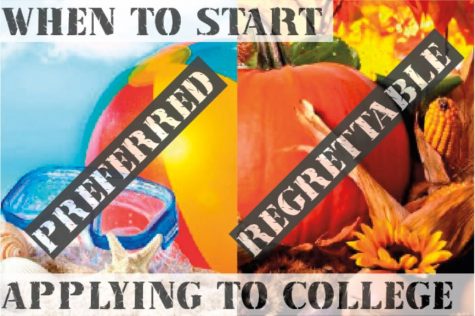
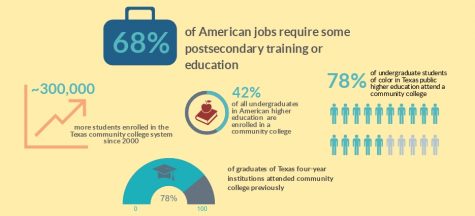
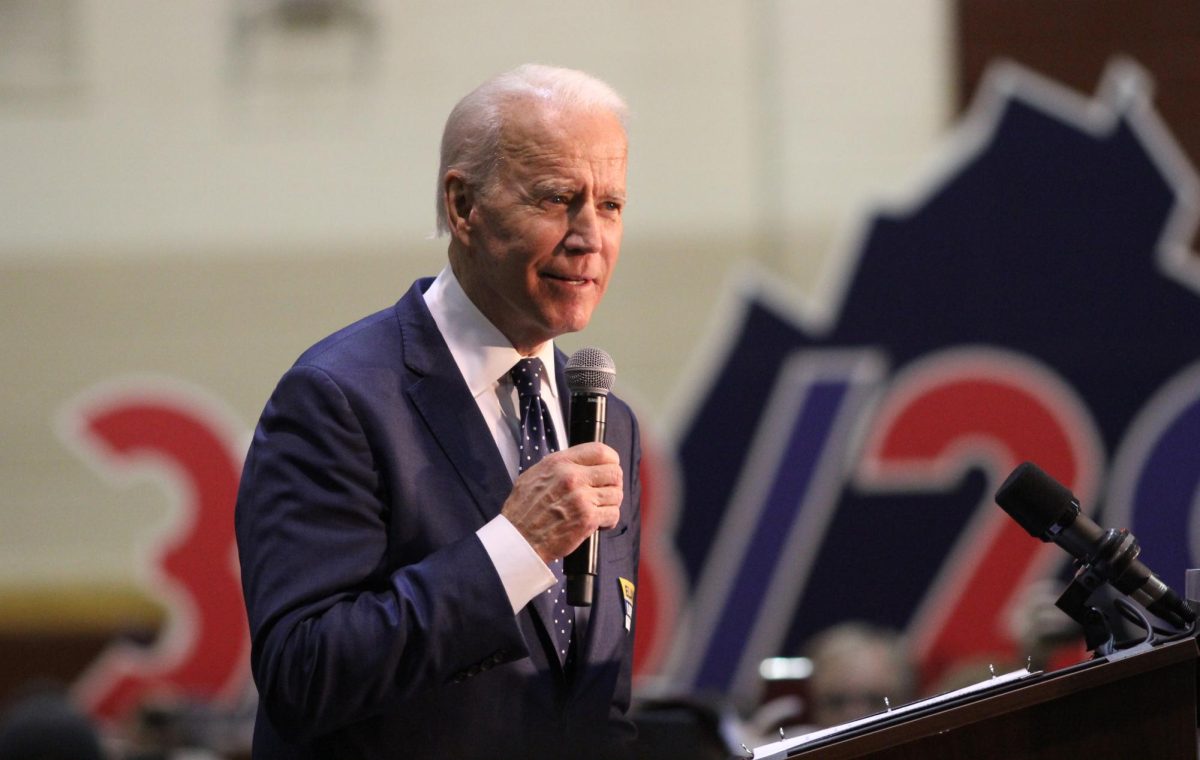
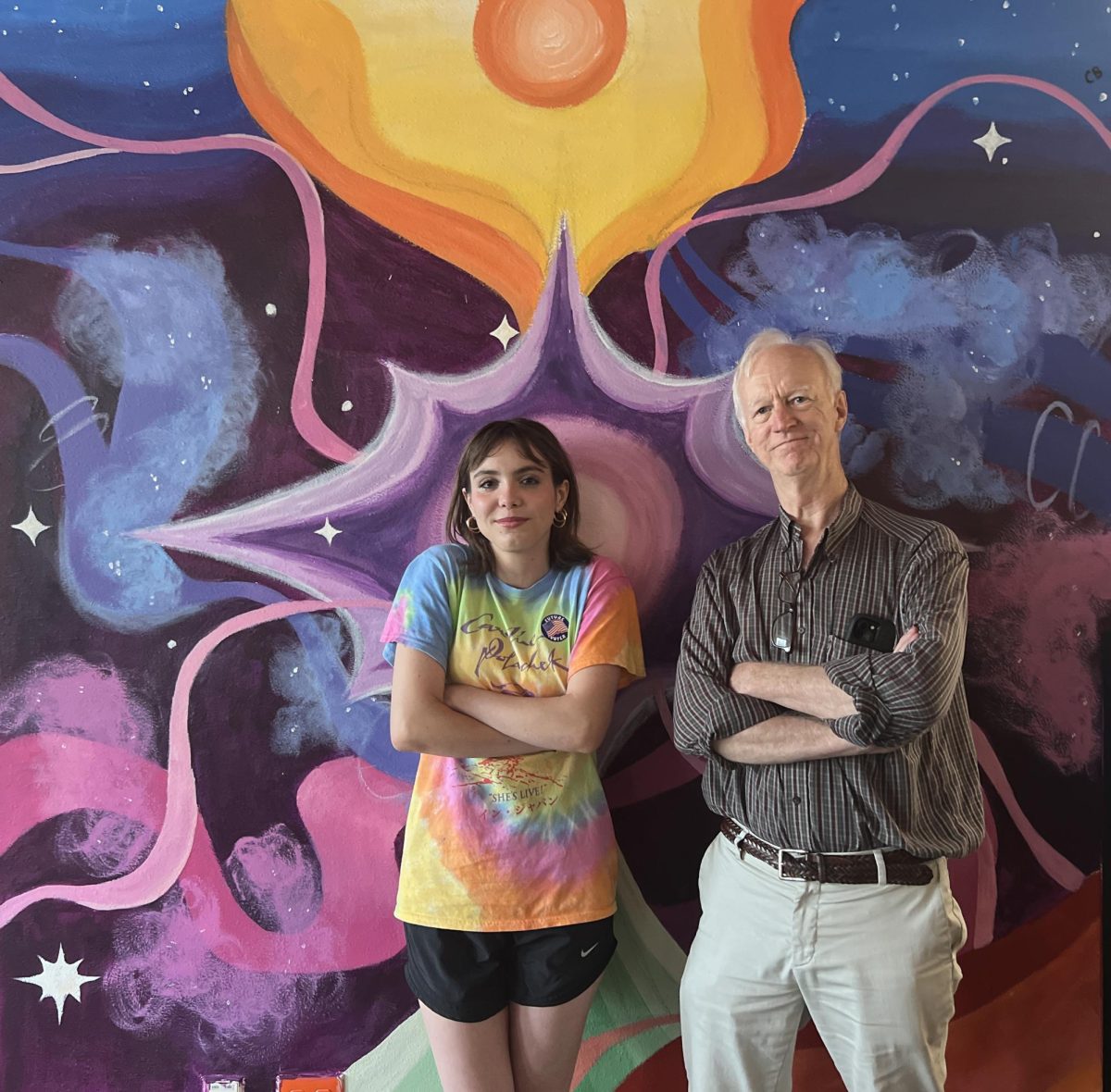

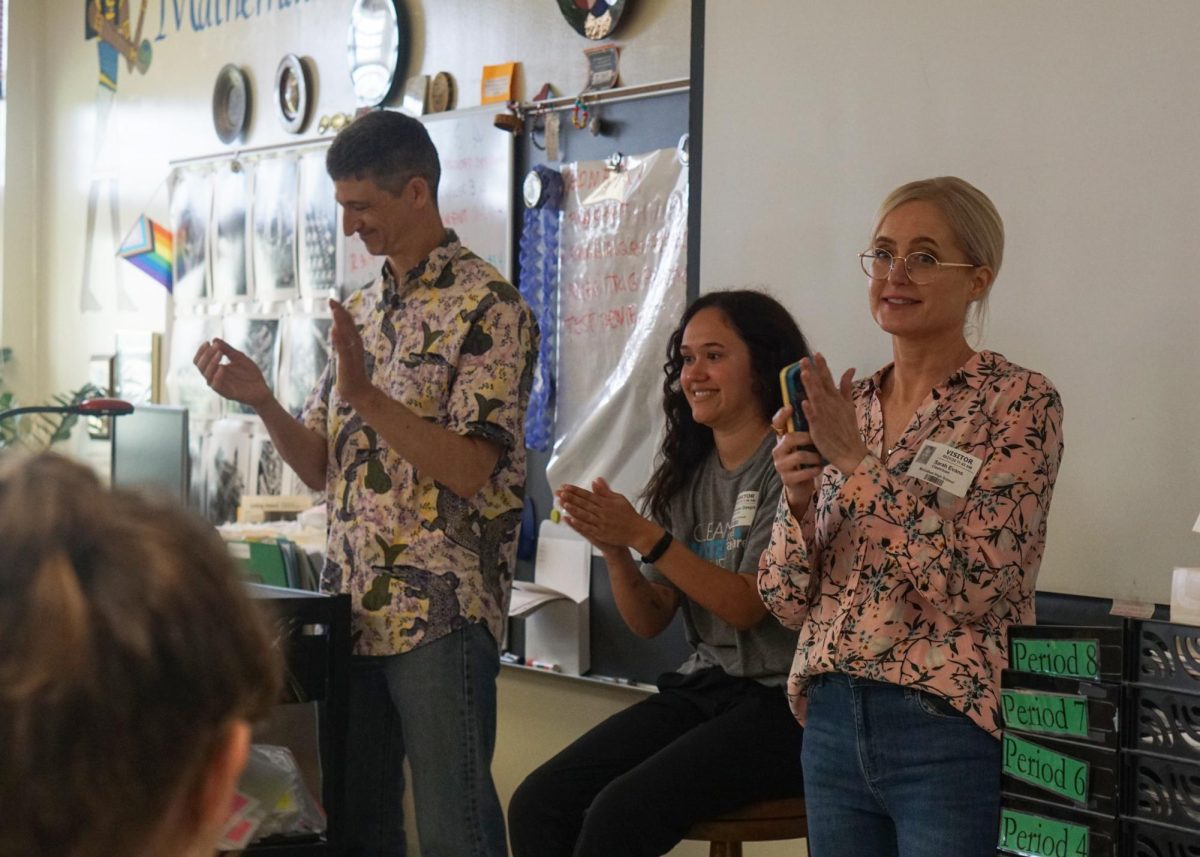

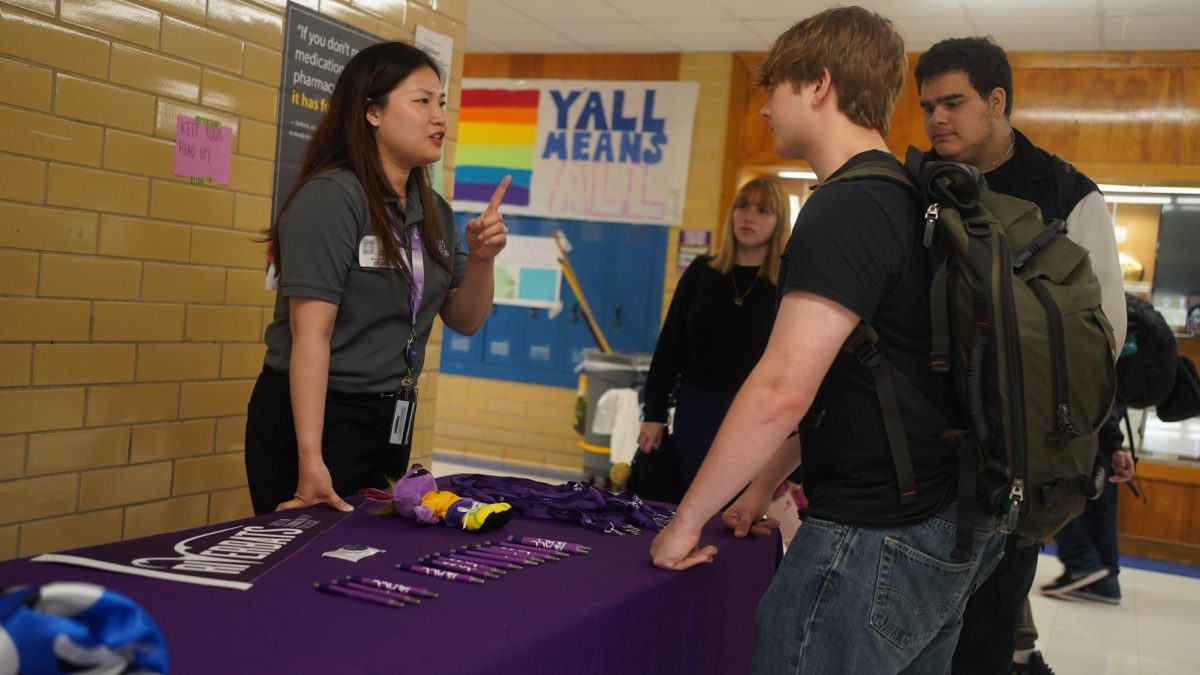

Adele Seeboth • Apr 1, 2024 at 10:16 am
I really enjoyed reading this article. I think the topic is very important and not often talked about. I’m grateful there were interviews from the social media people, counselors, and students. It was really helpful to see a lot of different views and reasoning. The statistics also made this article memorable and interesting. I think that social media has started to have a huge effect on students and their futures, it should be written about more so thank you for writing about this topic.
Beatrix Lozach • Feb 22, 2024 at 12:38 pm
I really appreciate this article’s demystification of online college advice, because it can be an absolute minefield and focus solely on incredibly elite institutions. That being said, I would have loved an extension that focused on how the college admissions craze plays out in high school, because I have noticed a general anxiety among upperclassmen and competitiveness within cohorts that disturbs me.